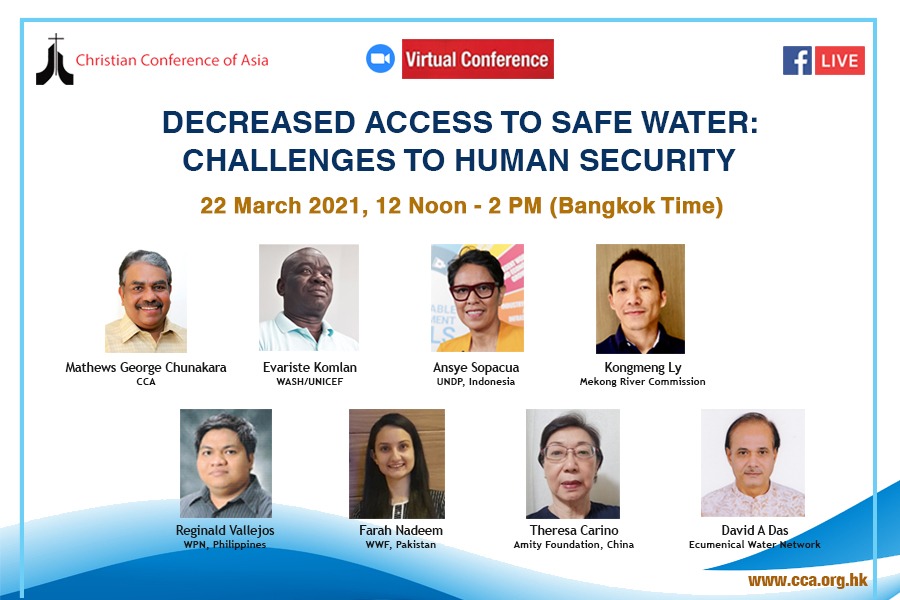‘Decreased Access to Safe Water and Challenges to Human Security’ will be the focus of CCA’s forthcoming webinar

A webinar entitled ‘Decreased Access to Safe Water and Challenges to Human Security’ will be facilitated by the Christian Conference of Asia (CCA), in conjunction with the World Water Day-2021.
Scheduled for Monday 22 March from 12:00 to 14:00 (12 PM to 2 PM) Thailand time, the webinar will highlight the right to water and challenges to human security due to decreased access to safe water.
The panellists represent UN agencies, international and national non-governmental organisations working in the field of water, sanitation, and hygiene, as well as ecumenical organisations including the Ecumenical Water Network (EWN).
The panellists will focus on various aspects of the main theme such as ‘Access to Water and Human Security’, ‘Decreased access to safe water in Asian contexts’, ‘Advocacy for clean and safe water for all’, and ‘Building wider partnerships in responding to human security challenges’.
Mathews George Chunakara, the CCA General Secretary, will introduce the theme and be the moderator.
The panellists include Evaristie Komlan, UNICEF–WASH; Ansye Sopacua, UNDP; Reginald Vallejos, Water for the People Network (WPN) in the Philippines; Kongmeng Ly, Mekong River Commission in Lao People’s Democratic Republic; Farah Nadeem, Coordinator, World Wide Fund for Nature-Pakistan (WWF Pakistan); Theresa Carino, Advisor to the Amity Foundation, People’s Republic of China; and David Das, Asia Representative to the Ecumenical Water Network (EWN).
For registration, please use the link below:
https://us02web.zoom.us/
For additional information, please refer to the Background Information Note.










